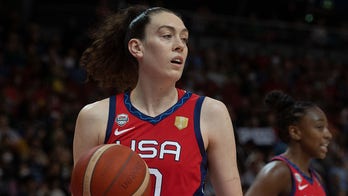A historic settlement has been reached between the NCAA and the Power Five conferences, allowing them to pay athletes directly. The agreement provides billions of dollars in backpay damages and future revenue-sharing, marking a significant shift in college sports and potentially reshaping its future.

For the first time in collegiate history, the NCAA has authorized its Power Five conferences to compensate athletes directly. This groundbreaking agreement stems from a landmark antitrust class-action settlement announced by the NCAA and the Big Ten, SEC, Pac-12, Big 12, and ACC conferences.

The settlement includes billions of dollars in backpay damages and tens of billions of dollars in future revenue-sharing for student-athletes. The revenue-sharing plan allows each school to distribute up to $20 million annually to its athletes.
The agreement expands on existing benefits such as scholarships, third-party NIL payments, healthcare, and other perks. Schools can choose to provide the new payments and benefits to athletes participating in any Division I sport.
As college revenues increase, so will the benefits and payments to athletes, ensuring a continuous stream of financial support. Over the 10-year settlement period, the estimated value of these payments and benefits may exceed $20 billion, making it one of the largest antitrust class-action settlements in history.
Steve Berman, managing partner and co-founder of Hagens Berman, hailed the settlement as a "landmark" that will modernize college sports and provide athletes with their fair share of the revenue they generate.
Jeffrey Kessler, co-executive Chairman of Winston & Strawn, also played a key role in negotiating the settlement. Division I athletes dating back to 2016 who qualify for the settlement cannot sue the NCAA for other antitrust violations.
The settlement is seen as just the beginning of a broader evolution in college sports. Issues such as employee status and unionization for athletes remain to be addressed.
Josh Whitman, athletic director for the University of Illinois and NCAA Division I Council chair, acknowledged the need to sort out the details of the settlement and its potential impact on college athletics.
Judge Claudia Wilken, presiding over the three cases against the NCAA, will review the final settlement terms in court over the next 30 days. Athletes have the option to reject the settlement and participate in an ongoing antitrust case.
More than 10,000 former and current athletes are expected to benefit from the $2.7 billion in damages, with a sports economist developing formulas for distributing the funds.
Athletic directors expressed hope that the settlement would stabilize the landscape of college athletics, reducing the reliance on financial spending as a competitive advantage.
Whitman emphasized the opportunity to reshape the model of college sports, creating a system that rewards on-field success rather than financial resources.
The NCAA has faced mounting pressure in recent years to address athlete compensation and other issues. This settlement is a major step towards addressing these concerns and ensuring that college athletes receive their fair share of the enormous revenue generated by college sports.










